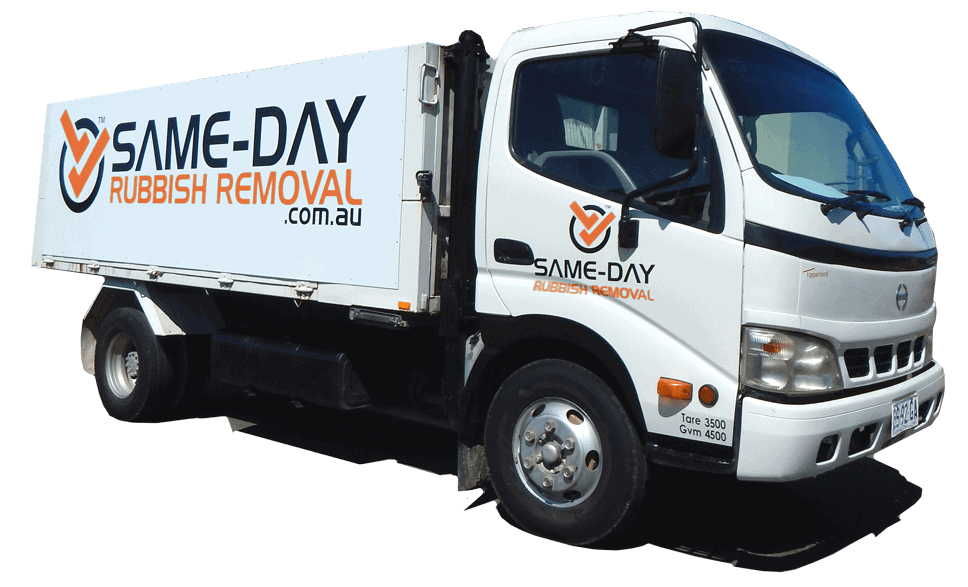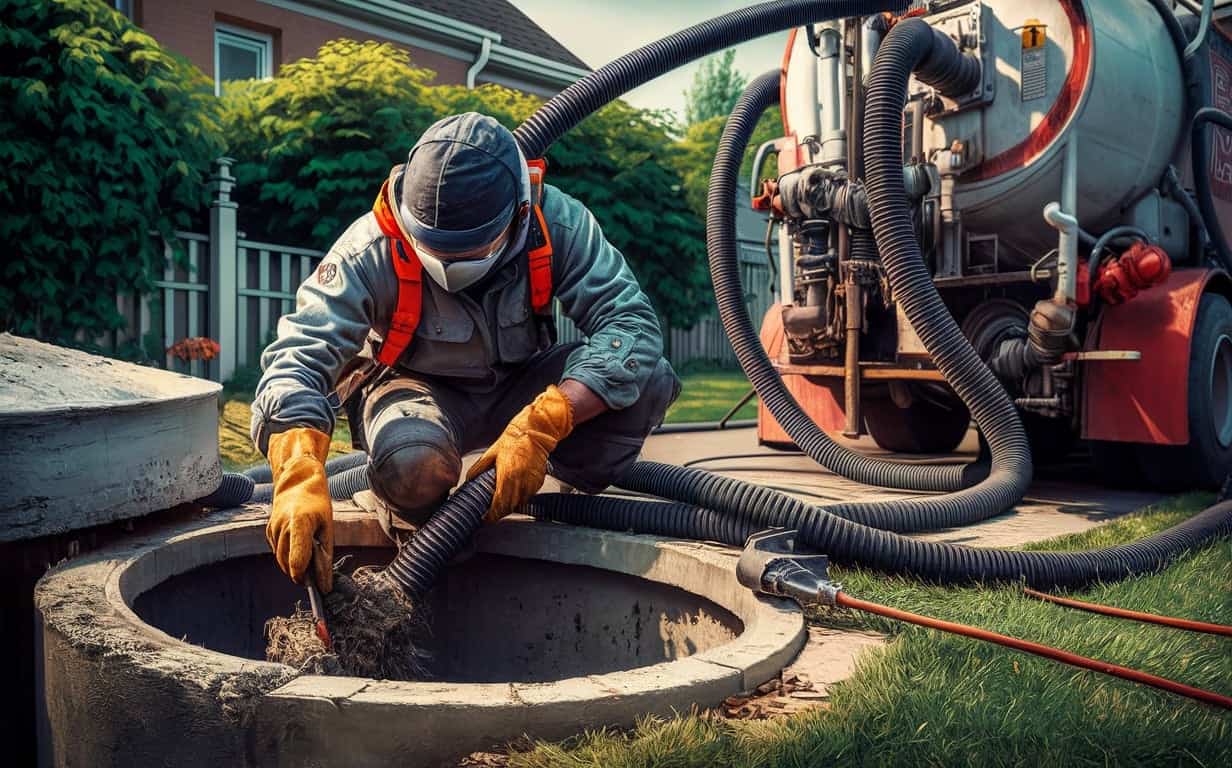Are you overwhelmed with home rubbish and don’t know where to start? Disposal is often more challenging than it seems, especially if you have large amounts or hazardous materials in your pile. The right approach can save you time, hassle, and ensure your waste is handled responsibly.
Juggling a busy life with proper rubbish disposal sometimes demands professional intervention. To get the job done quickly and efficiently, you can always visit Same Day Rubbish Removal Melbourne. They handle almost everything from broken appliances to garden waste.
Not knowing what is disposable and where can lead to harmful environmental impacts. Follow this no-nonsense guide to understand different types of home rubbish and their best disposal methods. Ensure your lifestyle doesn’t leave behind a lasting blemish on Mother Nature.

Understand Local Regulations
It’s imperative that you acquaint yourself with your local waste disposal laws. These regulations vary, so understanding the specifics within your jurisdiction is crucial.
Legal Requirements
Your area’s legal requirements for waste disposal often dictate the type of waste you can dispose of and how it should be done.
By disregarding these laws you’re risking fines or penalties, hence you must properly research this. Visit EPA for additional information.
Eco-Friendly Disposal
Besides legal repercussions, consider environmental factors when disposing of household rubbish. An eco-friendly approach demonstrates responsibility and respects our communal surroundings.
Through recycling and composting you substantially reduce the volume of waste that ends up in landfills, helping to create a sustainable environment.
Safety Measures
Always adhere to safety measures whenever you’re handling household waste. Some rubbish can be hazardous and needs special treatment to avoid injuries.
Safety gloves, sturdy trash bags, and keeping pets or children away from waste are simple but effective practices to adopt during disposal activities.
Sort Your Waste
Properly sorting your waste is the first step towards efficient home rubbish disposal. You can reduce overall waste and optimize recycling opportunities.
To effectively sort your rubbish, you should understand what goes into each bin. The UK’s recycling framework suggests specific categories and where they should be disposed of.
| Type | Disposal Method | Recycled Materials |
| Paper & Cardboard | Recycling Bin | Newspapers, Magazines, Packaging Boxes |
| Glass Bottle & Jars | Bottle Banks | Glass Beverages, Food Containers |
| Cans & Foils | Recycling Bin | Tin Cans, Aluminium Foils, Empty Aerosols |
| Plastics | Recycling Bin or Specific Plastic Banks | Bottles, Trays, Bags |
Your careful efforts in waste sorting contribute to energy conservation and natural resource preservation.
You can find more about the correct way to dispose of waste here.
Paying heed to waste management at home goes a long way towards preserving our environment.
Use Proper Containers
Efficient home rubbish disposal starts with using the right containers. Find sturdy bins specifically designed for domestic waste management.
You must ensure they have tight-fitting lids to prevent unpleasant smells and deter vermin. The choice of your rubbish containers matters a lot.
- Standard wheelie bins: These are ideal for general household waste. They’re easy to move around, making them suitable for weekly rubbish pickups.
- Compost bins: Perfect for green waste like vegetable peels, grass cuttings, or coffee grounds. They help reduce rubbish sent to landfill while enriching your garden soil.
- Recycling boxes: These are essential for separating recyclables like paper, plastic, and glass. It helps in preserving natural resources and reducing environmental footprints.
Incorporating these bins into your waste management plan makes your home safer and cleaner. Moreover, they promote better recycling habits, assisting in safeguarding the environment.
Maintain cleanliness by periodically washing your bins to avoid unpleasant odors and prevent bacterial build-up. Be part of those who champion an environmentally friendly lifestyle through efficient waste management.
Manage Hazardous Materials
Dealing with hazardous waste requires special attention. You must ensure these materials are disposed of correctly to keep your home and the environment safe.
Hazardous waste includes particular items found in most homes. These items have the potential to cause harm if not discarded in an appropriate manner.
- Batteries: They can leak harmful chemicals into the soil. Recycle old batteries wherever available.
- Paint: Certain types of paint can be harmful. Use up leftover paint, or donate it.
- Pesticides: These are toxic to humans and pets. Follow the disposal instructions on their packaging.
- Cleaning Products: Some household cleaning products contain harmful chemicals. Find out how to safely dispose of them in your area, or opt for natural alternatives which you can learn more about at this source.
Your local council or municipality can offer guidance on disposing hazardous waste properly. They might run collection events or recycling programs for such materials.
A responsible approach to rubbish disposal minimizes risks, contributes to a healthier environment, and keeps your home safe. Be conscious of your rubbish disposal habits.
Schedule Pickup Times
You’ve cleaned up and found piles of rubbish. Now, decide when to dispose of it. A critical step in proper rubbish disposal is scheduling pickups.
Coordinate with your local waste management or rubbish collection service. Most have convenient schedules for picking up large volumes of trash. Your task becomes easier.
Understanding their specific policies helps avoid any misunderstanding. Ensure that you are home or have someone available when they arrive for the pickup.
- Identify Trash Types: Separate household items according to their disposal needs.
- Plan Ahead: Start cleaning earlier than the scheduled pickup dates.
- Leverage Recycling: Reduce waste by recycling eligible items.
- Hazardous Materials Handling: Dispose of harmful wastes safely according to local regulations.
Your home will remain clutter-free. Spending a few minutes to schedule pickups ensures that your rubbish won’t pile up into unmanageable amounts.
Bonus: Scheduled pickups also help maintain a cleaner environment by preventing illegal dumping! Turn your home clean-up endeavours into a contribution to planet health.
Consider Composting Options
Your disposal habits significantly affect the environment. That’s why composting remains a viable, eco-friendly option for managing some of your household waste.
The Composting Process
Organic materials, from kitchen leftovers to garden clippings, can be recycled into nutrient-rich compost. This substance is excellent for enriching garden soil.
By composting, you utilize nature’s recycling process. Not only do you reduce waste going to landfill, but you also contribute to a sustainable environment.
Setting Up a Compost Pile
The first step is choosing an appropriate location for your compost pile or bin. The chosen spot should be easily accessible yet concealed enough.
Combine the green (vegetable scraps) and brown (twigs) materials in equal parts. Turn the pile regularly to speed up decomposition and avoid odours.
Compost Benefits
You might wonder: What are the benefits of composting? Notably, it enriches your soil with essential nutrients needed by your plants for optimum growth.
In addition, it reduces reliance on chemical fertilisers, promotes biodiversity in the soil and aids in carbon sequestration – a vital climate change mitigation strategy.
Think About Recycling
When you’re disposing of home rubbish, it’s crucial to consider all the recyclable items. Most communities have efficient recycling programs—use these dispositives to avoid unnecessary waste.
What Materials are Suitable for Recycling?
Common household items like paper, cardboard, certain plastics, glass, and metal can often be recycled. Always verify with your local recycling guidance.
Why Should I Recycle at Home?
Recycling conserves resources, prevents environmental harm, and reduces landfill use. It’s easy to do and everyone benefits from a cleaner environment.
Can Food Waste be Recycled?
Yes! Many municipalities offer composting services or you can create your own backyard compost bin. It’s a great way to recycle organic waste.
Where Do I Find More Information on Recycling?
You can learn more on Recyclebank, an informative site offering tips for effective residential recycling. Share the knowledge!
How Can I Improve My Recycling?
Rinse items before recycling, break down cardboard boxes, and don’t forget about smaller everyday items like soda cans or bottles.
Plan for Bulk Items
If you are tackling home rubbish disposal, planning for bulk items is a necessity. Enormous items can present unique challenges in the disposal process.
Choose the Correct Disposal Method
Proper disposal of bulky items is crucial. They don’t belong in the regular trash since they require a special pick-up or drop-off service.
Utilize Community Resources
Your local community likely offers bulk disposal options. Investigate assistance programs they support to help manage sizeable waste items effectively.
Dispose Responsibly
Bulky item disposal impacts the environment. Always opt for methods that minimize pollution, such as recycling or donating usable goods whenever possible.
Schedule Regular Disposals
Scheduling routine disposals can prevent the accumulation of large items. Maintain a clutter-free home by keeping up with your regular disposal tasks.
Dispose of Yard Waste
Proper disposal of yard waste is pivotal to maintaining the cleanliness, sustainability, and overall aesthetics of your living space.
Composting
Composting is an amazing way to convert your yard waste into a nutrient-rich soil conditioner. Turn leaves, grass clippings, and vegetable scraps into black gold!
You just need a compost bin or pile in your yard. Over time, these organic materials break down through natural decomposition into useful compost.
Burning
In some areas, burning yard waste may be allowed. This practice ensures quick disposal. However, local regulations should be checked for controlled burning.
Burning must be done safely. You need a designated space free from potential fire hazards. Always supervise the fire until completely extinguished.
Local Recycling Programs
Many local councils offer yard waste recycling programs. Typically green bins are provided where you can dispose of grass clippings, branches and leaves.
This is an environmentally friendly option; collected waste is usually turned into compost or mulch at a community level reducing landfill contribution.
Explore Alternative Solutions
When dealing with household rubbish, alternative solutions exist beyond traditional waste management strategies. These can reduce environmental impact and repurpose waste.
One method is composting organic waste. It’s a straightforward process that brilliantly aids in soil enrichment while reducing the amount of waste going to landfills.
You may also consider donating items in good condition. Various organizations happily accept donations and distribute them to individuals or communities in need.
- Composting: This lets you transform kitchen scraps into nutrient-rich soil for gardening, essentially enabling waste to nurture life.
- Donating: Giving out reusable items declutters your home and aids those less fortunate. Organizations like Goodwill accept everything from clothes to electronics.
- Selling: Why not make some money out of unwanted items? Online platforms like eBay are perfect for this purpose.
- Recycling: Make sure to separate recyclables like paper, plastic, glass, and metal from the regular trash. They can be processed into new products, conserving resources.
Rubbish disposal isn’t limited to throwing things away. Exploration of alternative methods can provide multiple benefits while reducing landfill contribution.
You now have an arsenal of practical tactics at your disposal – it’s time to employ these methods and redefine your approach to household rubbish management.
Your Final Step
Mastering home rubbish disposal requires due diligence and an understanding of numerous factors. And remember, if it ever seems too complex, professional help is just a click away.
Also Read
Drinking Water Treatment Process




